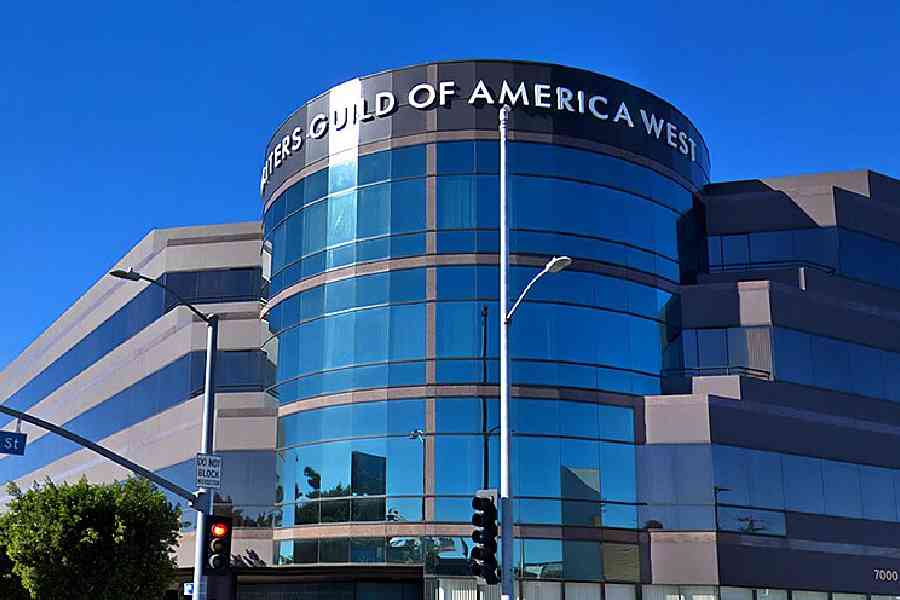Hollywood’s bitter, months-long labour dispute has taken a big first step toward a resolution.
The Writers Guild of America, which represents more than 11,000 screenwriters, reached a tentative deal on a new contract with entertainment companies on Sunday night, all but ending a 146-day strike that has contributed to a shutdown of television and film production.
In the coming days, guild members will vote on whether to accept the deal, which has much of what they had demanded, including increases in compensation for streaming content, concessions from studios on minimum staffing for television shows, and guarantees that artificial intelligence technology will not encroach on writers’ credits and compensation.
“We can say, with great pride, that this deal is exceptional — with meaningful gains and protections for writers in every sector of the membership,” the Writers Guild’s negotiating committee said in an email to members.
Conspicuously not doing a victory lap was the Alliance of Motion Picture and Television Producers, which bargains on behalf of studios. “The W.G.A. and A.M.P.T.P. have reached a tentative agreement” was its only comment.
For an industry upended by the streaming revolution, which the pandemic sped up, the tentative accord represents a meaningful step toward stabilisation.
But much of Hollywood will remain at a standstill: Tens of thousands of actors remain on strike, and no talks between the actors’ union, SAG-AFTRA, and the studios were scheduled.
The only productions that could restart in short order would be ones without actors, like the late-night shows hosted by Jimmy Fallon and Stephen Colbert and daytime talk shows hosted by Drew Barrymore and Jennifer Hudson.
The upshot: In addition to actors, more than 1,00,000 behind-the-scenes workers (directors, camera operators, publicists, makeup artists, prop makers, set dressers, lighting technicians, hairstylists, cinematographers) in Los Angeles and New York will continue to stand idle.
SAG-AFTRA has been on strike since July 14. Its demands exceed those of the Writers Guild and the studio alliance decided to prioritise talks with the Writers Guild, in part because of the hard line taken by Fran Drescher, the SAG-AFTRA’s leader. Among other things, the actors want 2 per cent of the total revenue generated by streaming shows, something that studios have said is a non-starter.
Even so, the deal with the Writers Guild could speed up negotiations with the actors’ union. Some of SAG-AFTRA’s concerns are similar to ones raised by the Writers Guild. Actors, for instance, worry that artificial intelligence could be used to create digital replicas of their likenesses (or that performances could be digitally altered) without payment or approval.
The last sticking point between the Writers Guild and studios involved artificial intelligence (AI). On Saturday, lawyers for the entertainment companies came up with language — a couple of paragraphs inside a contract that runs hundreds of pages — that addressed a guild concern about AI and old scripts that studios own. The sides spent several hours on Sunday making additional tweaks.
New York Times News Service











